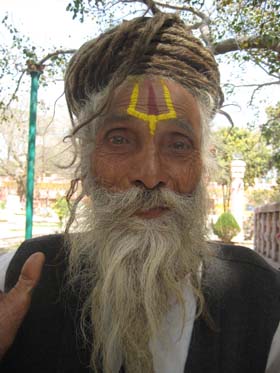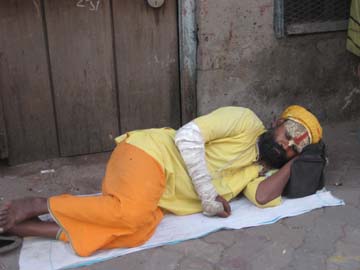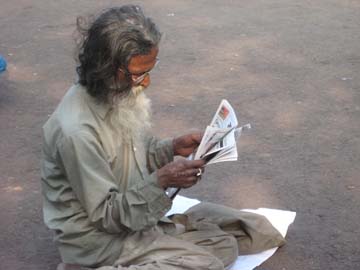
All photos by author
YOU MAY HAVE seen his eyes: whorls of melted brown lit from within. A staple of Indian travelogues. I’d see them and wonder, Who do those eyes belong to? One afternoon, in an ashram library in South Calcutta, amidst the shriek of a bustee, a man approached me with those eyes.


